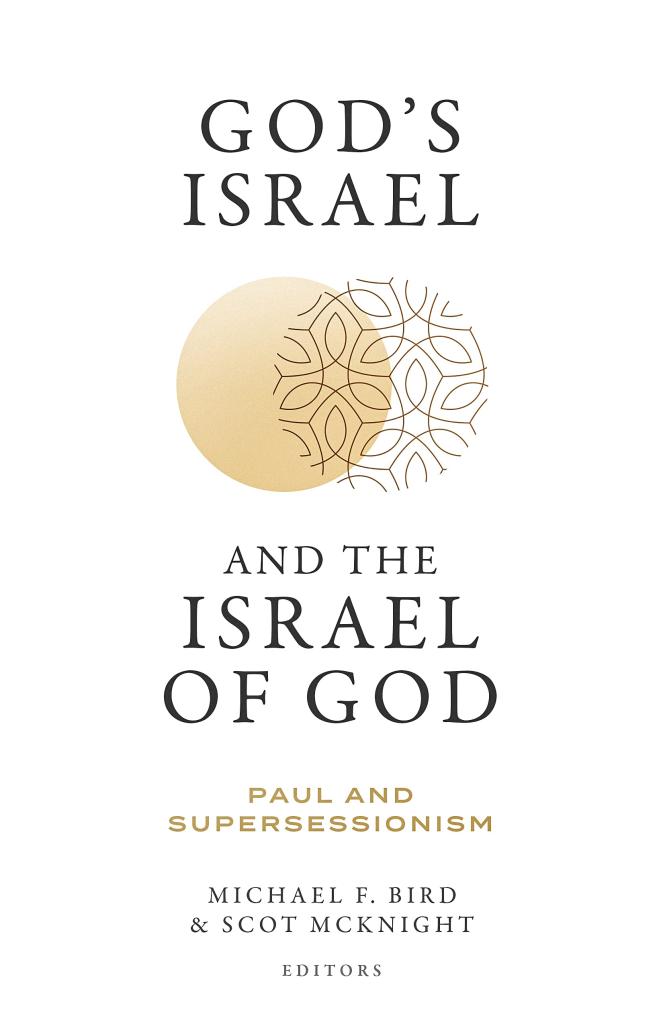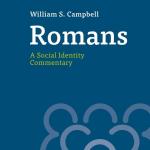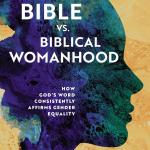This little book (176 pages) is hot off the press, and it deals with some pressing and impressive issues, not the least of which is how did Paul and how do and how should Christians today view Israel?
One of the more contentious issues in NT studies over the past 20 years is the issue of Paul and supersessionism, the latter of which has been defined in a various ways, but at its basis the term asks and answers the question– was Israel superceded by another people of God (say Jew and Gentile united in Christ) or should we affirm two peoples of God, and perhaps also two ways of salvation, one for Jews and one for Gentiles? The Paul within Judaism folks has basically argued for some form of the latter, and one can see this most recently in William Campbell’s interesting commentary on Romans.
The book begins with three major essays, one by Scot McKnight, one by Mike Bird, and one by yours truly on Paul, Galatians, and Supersessionism. This is followed by a diverse (to say the least) group of responders— Lynn Cohick who is in basic agreement with the three major essays, David Rudolph who provides a messianic Jewish response, Janelle Peters who provides one form of a Catholic response, and last but not least a response by Ronald Charles who is profoundly critical of all three of the major essays.
As a conversation starter on the presenting issues related to Supersessionism this is a good one because it does allow for some diversity of response. It is not too long, it’s not too technical, the writers are all respectful of opinions other than their own and they all recognize they might be wrong in the way they read the evidence. This would be a good book for a Pauline theology or exegesis class, but also for a class on the relationship between early Judaism and early Christianity.
Generally speaking, the three major essays are written by those who could be labeled evangelical Protestant Christians, but there are some fairly significant differences between the three. While they all agree that some form of supersessionism seems to be clearly advocated by Paul, especially in Galatians, the question becomes what form? If it simply amounts to saying Jesus is the messiah of Jews and the Savior of Gentiles without the church replacing Israel as the people of God, then the word ‘replacement’ should not be seen as a synonym for supersessionism.
Both McKnight and Bird seem to gravitate more in the direction of Tom Wright’s way of viewing things, in which one envisions Gentiles being grafted into Israel through their being ‘in Christ’. But is this really Paul’s view in Rom. 9-11? What is clear to me at least in Rom. 9-11 is that the term Israel refers to non-Christian Jews throughout that argument, and I would say elsewhere as well (e.g. in Gal. 6.6). It is a mistake to equate the Jewish Messiah with Israel, if Israel is Jews who thus far at least have not accepted Jesus as their Messiah.
What Paul does use dozens of times to describe the new identity of Jewish and Gentile followers of Jesus is that they are ‘in Christ’. The latter is the superordinate identity both Jews and Gentiles are being grafted into, and through Christ they are connected to Abraham (see Gal. 4— the new covenant is connected to the Abrahamic covenant not the Mosaic one, which is called by Paul in 2 Cor. 3 the ‘old’ covenant). Abraham in both Gal. 3 and Rom. 4 is set up as the paradigm of those who obtained right standing with God by trusting the Biblical God— Abraham’s faith or trust is credited as Abraham’s righteousness or right standing, and so also later for Jew and Gentiles in Christ. There is nothing here in Gal. 3 or in Rom. 4 about Christ’s righteousness being imputed to Abraham or to Christians. This requires a misreading of several other Pauline texts, but that’s a story for another day. In Romans it’s all about imparted righteousness not imputed righteousness, beginning with right standing with God and then with being sanctified by the Spirit so that we might be the righteousness of God (so 2 Cor. 5).
Abraham is quite literally the forefather of both Jews and Gentiles according to the flesh, because he began life into adulthood as a pagan. Paul repeatedly refers to covenants plural (see both Gal. 4, and Rom. 9.1-5), and does not see the new covenant as a renewal of the Mosaic one (the latter being a holy and good covenant that has had its goal and fulfillment in Christ, particularly in his death and resurrection). Nevertheless, God is not reneging on his promises to Israel, but, as Rom. 11 makes clearly, they will be fulfilled only after the full number of Gentiles are saved, followed by the Redeemer (i.e. Christ) returning from heavenly Zion and turning away the impiety of Jacob and so all Israel will be saved by the grace and mercy of the Redeemer, just as the Gentiles were.
At no point does Paul really envision two peoples of God. His point in Rom. 9-11 is that Jews who don’t believe in Christ have been temporarily broken off from the people of God with Gentiles being grafted into the root (but who exactly is the root— Jewish Christians like Paul? Abraham?), but the non-believing Jews can be grafted back in, and indeed Paul believes that will happen. In short, God is not finished with Israel yet, nor is Jesus, and in the meantime they can go one keeping the Mosaic covenant and being zealous in that way. Gentiles don’t need to become Jews or part of Israel to be saved (see Galatians), and Paul foresees only some Jews becoming Christ followers before the return of Christ.
All of this sort of reasoning presupposes that ‘the ends of the ages’ or the eschatological time has been inaugurated by Christ, and even Jews needed to be rescued in that age, not just Gentiles. The Mosaic Law was holy, just and good, but it could not enable fallen human beings to fully keep it. Only the eschatological Spirit could provide such an ability, and Paul believes it has been provided as a result of the Christ event.
That the new covenant is genuinely new is clear from the fact that the covenant sign is gender-inclusive baptism, not male only circumcision the sign of the Mosaic covenant. This does not mean that the new covenant doesn’t have commandments or doesn’t require obedience. But as Paul says the new covenant law, called the law of Christ includes some Mosaic commandments, some of the teaching of Jesus, and some of the amplifications and further teachings of the apostles as well. Christians are expected to follow the example of Christ and live out the Sermon on the Mount among other things. Again, this is Paul’s vision of things, and not all early Christ followers agreed, chiefly the Pharisaic Jewish Christians that were insisting the Gentiles needed to get circumcised and become integrated into early Judaism (cf. Acts 15.1ff. to Galatians). Paul is adamant that Gentiles do not need to follow that route to be in right standing with God. But he is equally adamant that Jews like himself need to embrace their Messiah not least because the promises of God are yes and amen in Christ, as Paul says.
I did not find the critiques of Peters or Charles very helpful, as they fail to grasp the nettle of how radical a Jews Paul actually was. Nor does Rudolph who fails to see that Paul is saying that Jews like him are not obligated to keep the Mosaic covenant any more, though they may do so to be a good witness and not cause fellow Jews to stumble. Notice that the discussion of weak and strong in 1 Cor. 8-10 and Rom. 14 makes clear that Paul does not think that the observance of a particular day, or a particular kind of food is required of himself as a Jew, or of Gentiles. In the new covenant, it has become a matter of adiaphora.
And behind and beneath all of this discussion on the part of many is an insufficient understanding of how covenants in antiquity actually worked. If the sovereign who made the covenant found that the people with whom he made it had broken the covenant again and again, that sovereign was under no obligation to keep going with that covenant. He could start over from scratch or not, and the promises he had made were conditional upon the positive response of his people (‘if my people who are called by my name will turn……. then’).
Fortunately for us all, God is and will be true to his own character and nature, and this is why he has not reneged on promises he made earlier, even though the Mosaic covenant has been broken again and again. The righteousness and grace of God, should not be equated with terms like ‘covenant faithfulness’. No, God is being true to his own nature, and has no obligation to be faithful to a covenant that has been broken. He will have mercy on us all, because he loves us all, and desires all of us to be saved.
And that’s the Gospel truth Paul was trying to convey perhaps especially in Galatians and Romans.














